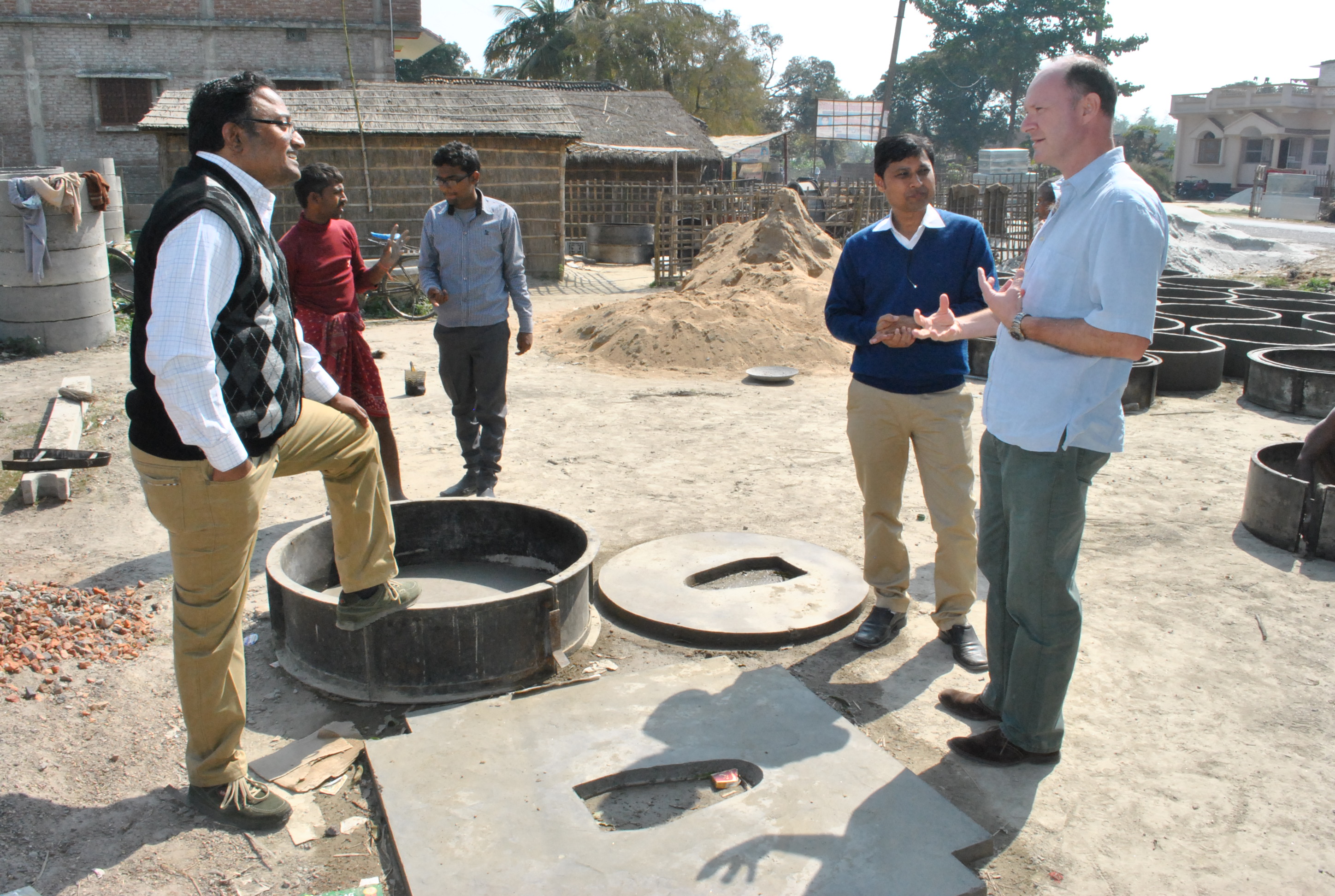Getting to know PSI's market-based sanitation work in India
|

Dr. Desmond Chavasse, the Senior Vice President of Malaria and Child Survival for PSI's programs, recently traveled to Bihar, India to gain a deep understanding of PSI's largest market-based sanitation program, 3SI: Supporting Sustainable Sanitation, funded by the Bill and Melinda Gates Foundation. Below is part one of a three-part travel journal of his experience. Originally posted on PSI's blog.
It is remarkable that while India routinely launches satellites into space, half of its population (600 million) does not have access to a toilet. If the Indian state of Bihar were a country, it would have the 14th highest population in the world and yet only 18 percent of its households have a toilet.
In February, I visited PSI's market-based sanitation program in India. The project is funded by the Bill & Melinda Gates Foundation and is attempting to develop business solutions to increase access to sanitation in Bihar, where open defecation is common.
This $8.7 million project aims to deliver over 450,000 toilets over the course of five years - but not by simply building them for people. The focus is on combining product innovation with testing different consumer-focused business models in markets that need both badly. The different business models will attempt to link demand-creation for toilets and toilet-consumer financing mechanisms with businesses, while also improving masons' capacity to deliver toilets that meet the needs, desires, and pockets of Bihar's residents.
The first two days of my visit involved a field trip to see the communities where PSI is working and to meet business owners, masons, and members of the community. I also met with microfinance providers, government officials, and other stakeholders, including representatives from UNICEF and from the Gates Foundation.
After the field visits, what struck me was the complexity of the project and the large number of moving parts that will need to be coordinated carefully to create a healthy and sustainable sanitation market that delivers the required toilets in the community; toilets that will provide the foundation for ending open defecation in Bihar.
PSI has existing frameworks and tools to help us identify problems and how to prioritize them, such as PSI's marketing planning and performance improvement processes. In addition, PSI/India has assembled an excellent team of partners including Monitor Deloitte, PATH, and Water for People; by working together we can achieve greater results.
It's the first time that PSI has been directly involved in using a business approach to increase access to, and use of, sanitation; involving interventions that attempt to fix the existing market rather than replace it. It is also PSI's largest sanitation project and right in our bulls eye as it seeks to make markets work for the resource-poor, and will contribute to delivering on our core values of relevance, scale, and value.
The existing market is unable to provide toilets for the community in Bihar without investments to overcome fundamental blockages that prevent the toilet market from working effectively. The key to success will be using a new approach to market research, to really understand how the market is currently operating, identify the weak links that require fixing, and to then develop innovative and sustainable business models that lead to more rapid growth in the number of toilets in the community.
Why a market-based approach? Because we don't expect to be in Bihar forever. What PSI looks to do, as an intervention, is to move markets consisting of consumers and entrepreneurs to a new equilibrium that will be sustainable for the long-term. We'll be able to measure our impact, using DALYs averted as a bottom line, and long after we've gone those entrepreneurs will continue averting DALYs while they are also making a living.
See Part II or Part III of this series or learn more about PSI's sanitation program in Bihar.














